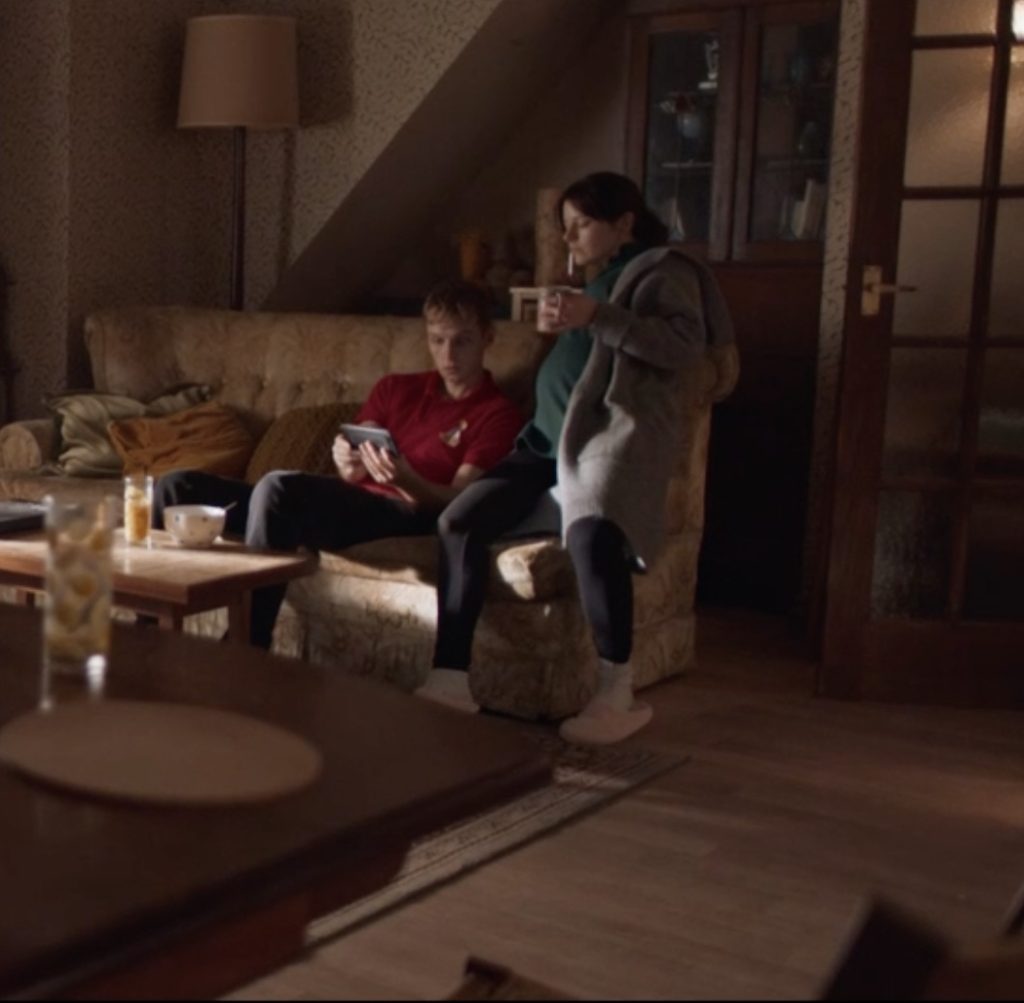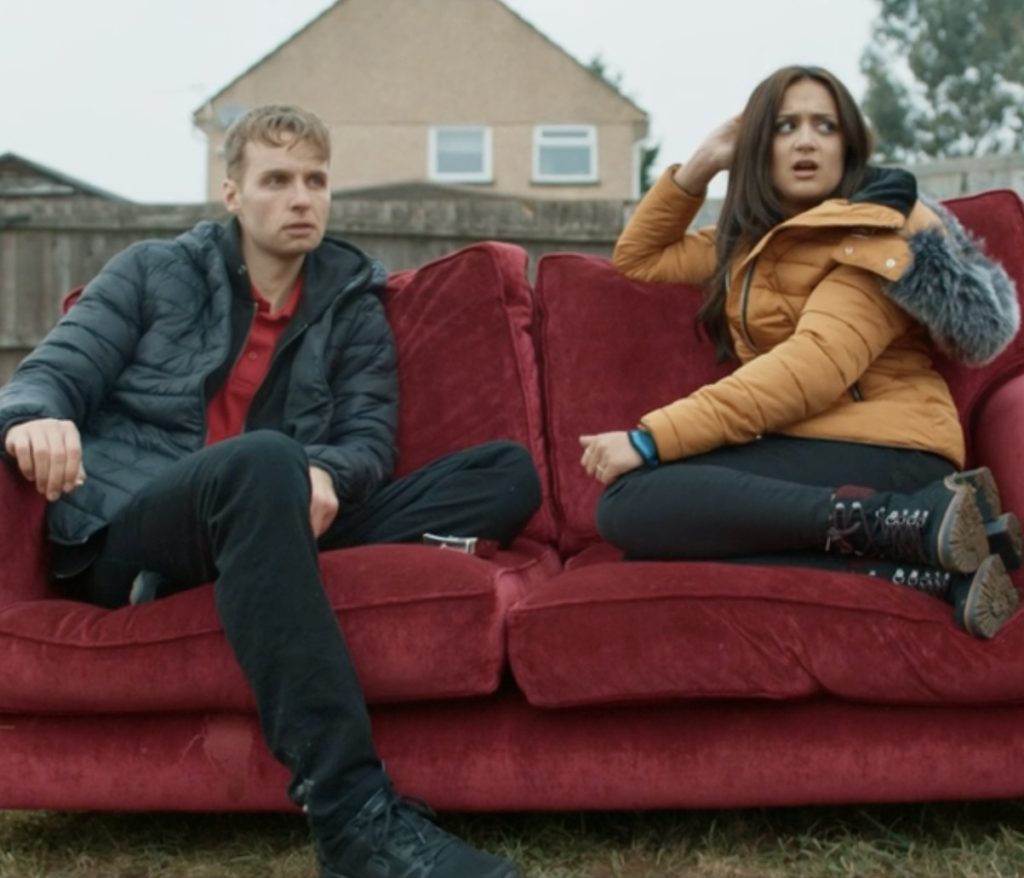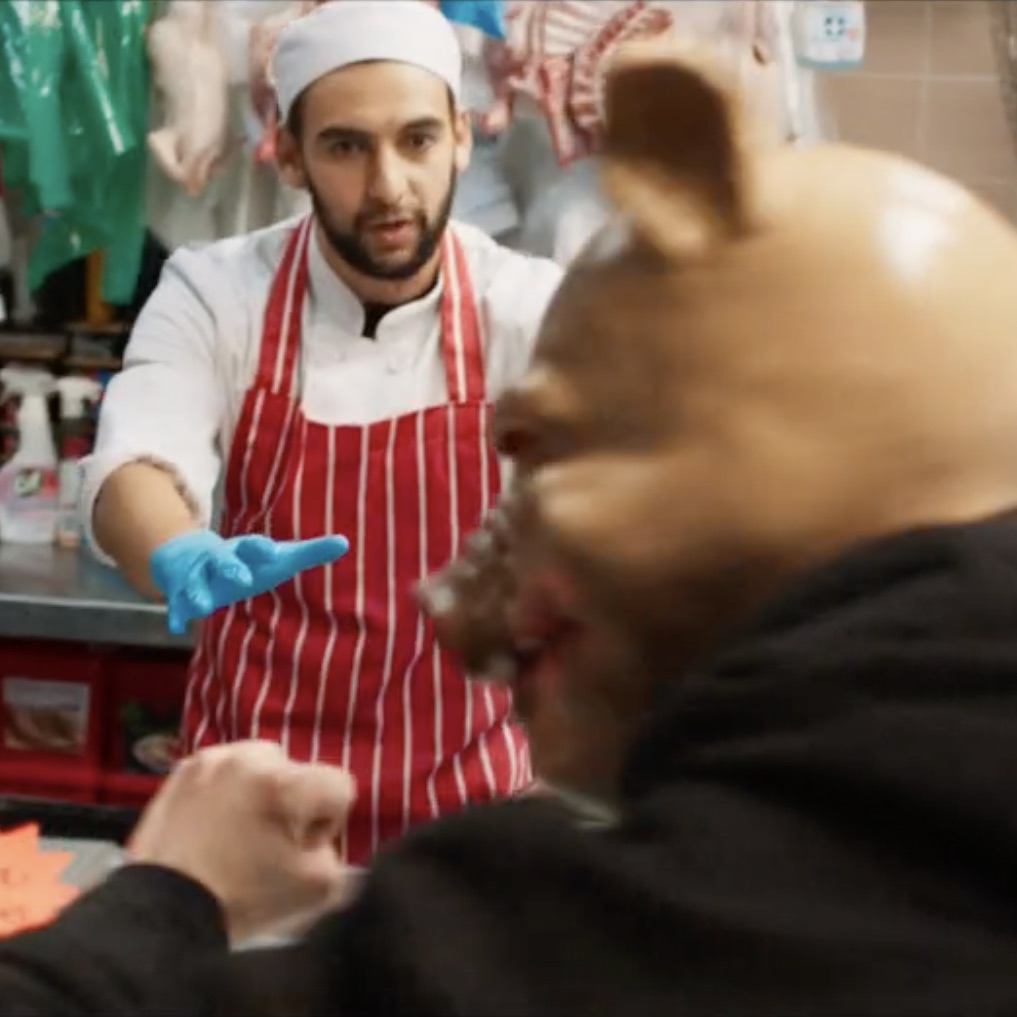Review: The Left Behind

The Left Behind is an hour-long BBC Three drama in which a young man who is facing homelessness as a result of his family’s eviction and gets very rapidly groomed into racist violence, leading to a fatal attack on a halal butcher’s shop. The BBC’s blurb describes it as a “factual drama” and “a steel-tipped state of the nation drama based on deep research into the realities of life in ‘forgotten Britain'”; however, the drama, set in Cardiff, is fiction. There is an interview with the writer and director of the drama on the BBC’s website, in which they draw the connection between being stuck in the “gig economy” without secure housing and becoming involved in the Far Right. There is, however, a lot they left out about this process.
The central character is Gethin, who seems to be sleeping in his sister’s shed and using her bathroom, but they are being evicted as the landlord wants to put up the rent and are forced to move into a “family hostel”, which means they cannot take Gethin. Gethin is working in a halal fried chicken restaurant and has a Muslim female friend (who he may or may not imagine might become his girlfriend), but the council tell him they cannot house him as he is a single man with no dependents; they also tell his sister that they cannot house her family with him and that they should not consider him part of their family. There is a development being proposed in his area, but this turns out to be a private housing development at market rates where 30% is to be set aside for ‘affordable’ housing, which is clearly well beyond the means of most local people. At a meeting to discuss that development, a councillor pleads that she understands everyone’s predicament, which makes everyone more angry; as it progresses, people start to blame ‘others’, particularly Muslims, for the fact that they cannot get housed.

Gethin has a group of friends, two white men and one black woman (later revealed also to be gay; she accuses the Muslims of hating women and gays, meaning she would be ‘fucked’ on both counts) and is approached online by someone who accuses Muslims of “taking over”, of demanding Shari’ah law and various other things, and Gethin also hears a news report about a group of men convicted of grooming and abusing young girls. He gradually begins to use a lot of the same rhetoric with his friends and while meeting an officer at the housing office, he demands to know why ‘they’ are getting housed rather than him when this is “his town”. Eventually he gets together with three friends who don pig masks and attack a butcher’s shop and break windows. He is later recognised as one of the perpetrators and waylaid in the street at night by two Muslim men who beat him up and spit on him; he then gets together with three friends and they set fire to the butcher’s shop, resulting in the death of a man who was sleeping in the building at the time, unknown to them. At the end of the programme, he is being visited in prison by his sister, who begs to know whether he knew the man was in the shop.
I’m not a film critic and my critique of this drama will be about its core premise, not the quality of the acting or camera work, though I found the slow-motion filming of the attack on the butcher’s shop near the end to be confusing; I was not sure what Gethin was doing or where he was at any given time during that scene. I would have preferred that they just film it in “real time” as they did the rest of the programme. So, to come to my main issue with this programme: it gave too much weight to the idea that poverty breeds extremism and examined no other angles. Apart from the report about the grooming gang, the only other media we saw in the programme was a snippet of a BBC Question Time programme from Barking. We saw the ridiculous spectacle of someone going from having a Muslim best friend and really not exhibiting any racist tendencies to setting fire to a butcher’s shop after being approached by some unknown online, admittedly when he was at a difficult point in his life.

The role of the broadcast and print media in fomenting racist attitudes was not even acknowledged here; not a single front page in which Muslims were accused of demanding Shari’ah law or a ban on this or that, or news story in which a women wearing a veil gets a council house with a six-figure value, or indeed any reference to them. Neither did we hear any talk radio show about hijab in primary school or any other Muslim-related issue. These outlets have been sowing racist and otherwise bigoted attitudes among the population for decades, and not just among the desperate. It was, for example, the overblown media reporting of the tiny al-Muhajiroun protest in Luton in 2009 that led to the formation of the English Defence League and may have won it many more followers than it would otherwise have had; the protesters were referred to simply as ‘Muslims’ when they were the remnants of a group which was known for causing trouble, which had been dwindling for years and whose leaders were always being offered microphones because their statements would make good copy. The recruits for the EDL came from the football hooligan community, not from the ‘desperate’ or ‘left behind’.
This is not to say that poverty, family breakdown and housing insecurity have no role in fuelling the growth of racism or the Far Right, but these things feed on prejudices which have been built up over years by organisations that profit from doing so. Sadly, the links between the ‘respectable’ and the commercial tabloid media are strong and writers and editors will often move from one to the other or take jobs on both at the same time and the BBC itself has promoted this kind of journalism on some of its local stations — it hired Jon Gaunt to shout at its London listeners for several years on its morning phone-in show until 2005 when they replaced him with the equally insufferable (though for different reasons) Vanessa Feltz. But the media must face up to their role in fostering the growth of the Far Right rather than, as happens here, suggesting that it is purely the product of poverty or desperation. It is a big missed opportunity.
